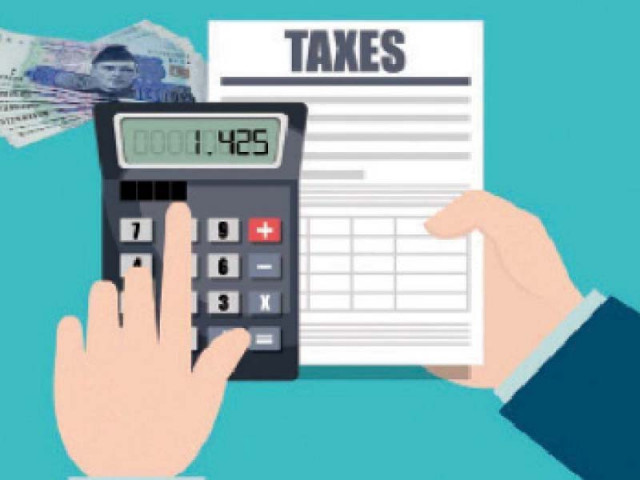Tax break on services to continue
PRA chief says sales tax cut during pandemic helped authority achieve targets

Sales tax exemption on 35 services in Punjab may continue in the years to come, announced Punjab Revenue Authority (PRA) Chairman Zainulabidin Sahi.
Talking to media at the Lahore Economic Journalists Association office on Tuesday, Sahi said that the reduction in sales tax on services from 16% to 5% in the midst of the Covid-19 outbreak helped the authority to close financial year with surplus revenue as it beat the targets.
“The authority surpassed its target of Rs105 billion for 2019-20 and closed the financial year at Rs108.59 billion,” he said. “During 2020-21, the PRA collected Rs144 billion against the initial target of Rs125 billion.”
In 2020, the government of Punjab announced a relief package for small businesses to combat the adverse impact of Covid-19 and as a result sales tax on nearly 35 services was reduced from 16% to 5%.
The PRA chairman stressed that Pakistan needed to widen its tax base without adversely impacting the economy and the ease of doing business.
“We conducted an analysis of why our tax base is narrow and the outcome shows that most of the people lack awareness and they do not know how and where to register their enterprises to file taxes,” he said.
“Lack of knowledge compelled us to conduct several workshops for businesses.” Owing to the awareness drive, the authority managed to register 100,000 taxpayers by the end of December 2021.
In the first six months (July-December 2021) of current financial year, the PRA fetched Rs72 billion in tax revenue against Rs58 billion in the corresponding period of previous year.
He cherished that the PRA had registered almost 22% annual growth in revenue, which was almost double the nominal GDP growth of the country.
He voiced hope that the authority would achieve current fiscal year’s revenue target of Rs155.9 billion.
Talking about policy reforms, Sahi said that an approach was adopted under which interaction with taxpayers was ensured prior to taking them to court and the strategy led to a reduction in the number of court cases to just 574.
Out of these, 64 were tax references in the Lahore High Court while 510 were writ petitions. “Average monthly cases have now fallen to less than five.”
In a majority of the cases, taxpayers were unaware of the issues and approached the court but “now we are trying to resolve the issues by engaging in consultation with the individuals,” he elaborated. “This has resulted in a drastic decline in litigations.”
Following the introduction of an open door policy, the trust of taxpayers in the PRA has risen and now they are positive about resolution of their issues.
Furthermore, the policy of non-coercive measures has enhanced the confidence of taxpayers.
“Other than the chairperson, no PRA official can seal a business or attach bank accounts of taxpayers,” announced Sahi. “Last year, coercive measures were taken in only three cases.”
Responding to a question about taxing the international service providers like Google, Netflix and others in the province, Sahi said that a mechanism needed to be established to collect taxes from them.
“Once the mechanism is in place, these platforms will be forced to pay taxes.”
PRA is devising a strategy under which a seamless system will be created for international technology companies and service providers to pay the taxes.
Speaking about tax evasion by restaurants, Sahi stated that so far 750 point of sale (POS) machines had been integrated with the PRA system while integration of many more was underway.
Apart from that, the PRA also raised awareness among small restaurants and service providers that were operating without the POS system.
Published in The Express Tribune, January 12th, 2022.
Like Business on Facebook, follow @TribuneBiz on Twitter to stay informed and join in the conversation.


















COMMENTS
Comments are moderated and generally will be posted if they are on-topic and not abusive.
For more information, please see our Comments FAQ